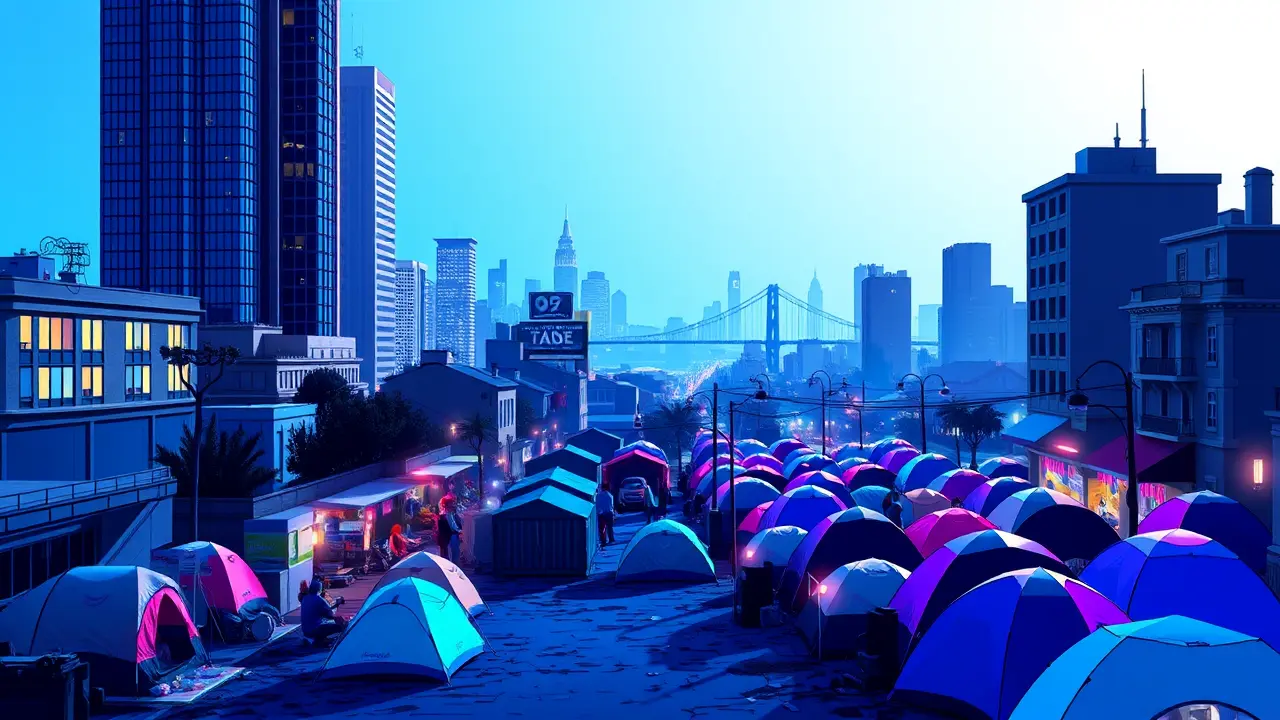San Francisco's Wealth Contrasts with Poverty and Drug Crisis
San Francisco, a city that has long prided itself on its progressive values and its role as the vanguard of the global tech revolution, now presents a stark tableau of inequality so profound it feels like a deliberate policy failure. The gleaming towers of South of Market, housing billion-dollar startups and the architects of our digital future, cast long shadows over the Tenderloin's open-air drug markets and the sprawling tent encampments that have become a permanent feature of the civic landscape.This isn't merely an economic disparity; it's a visceral, daily human rights crisis playing out on the same blocks. The tech boom, fueled by venture capital and a seemingly insatiable appetite for innovation, has created a stratospheric cost of living, pushing long-term residents and service workers to the brink and beyond, directly funneling people into homelessness.Concurrently, a severe and unrelenting drug epidemic, centered on fentanyl, has gripped the city, leading to a catastrophic number of overdoses that now claim more lives than COVID-19 did at the height of the pandemic. This dual reality has turned the city into a political and social battleground, drawing scathing criticism from figures across the ideological spectrum.Elon Musk, the archetype of the modern tech titan, frequently uses his platform to post videos and commentary lambasting the city's decay, framing it as a consequence of failed liberal governance. From the other side, Donald Trump seizes upon the imagery of San Francisco's struggles as a potent symbol in his culture war, using it to decry what he characterizes as urban lawlessness.Yet, beneath this high-profile condemnation lies a more complex story of a city struggling with the societal externalities of immense, concentrated wealth. The very policies intended to provide a compassionate safety net—such as harm reduction—are now being intensely debated for their efficacy in the face of such a potent drug supply.Non-profit workers and public health officials operate on the front lines with a sense of Sisyphean task, while small business owners and residents express a growing frustration with the perceived normalization of public suffering and disorder. This is not just San Francisco's problem; it is a premonition, a case study for every major metropolitan area grappling with the 21st-century forces of technological disruption, housing insecurity, and a poisoned drug supply. The city's journey forward will require a difficult, honest conversation that moves beyond partisan soundbites to address the foundational cracks in its social contract, demanding solutions that match the scale of its ambition with an equal measure of humanity and practical resolve for its most vulnerable inhabitants.
It’s quiet here...Start the conversation by leaving the first comment.
© 2025 Outpoll Service LTD. All rights reserved.
